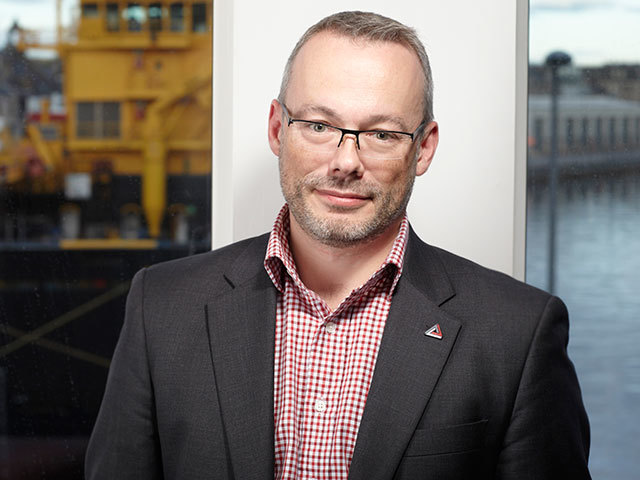
As an apprentice at Dounreay back in July 1988, I remember very clearly travelling the 22 miles from Thurso across the far north east corner of Scotland to Wick, to look out to sea.
We’d heard that you could see an orange glow from the unfolding disaster and macabrely we made our way to see what we could see. Some of you might also have been working offshore that night on other installations, although it’s increasingly more likely that, like me, you hadn’t yet started your career, and some of you wouldn’t even have been blessed with the gift of life yet, that was so cruelly taken from so many, on that night.
I cannot recall if I saw anything that night but do remember thinking that ‘offshore’ was not for me, the industry was dangerous. In hindsight and somewhat perversely, having experienced the fallout from the catastrophic nuclear accident that occurred at Chernobyl in 1986, this youthful and ill-informed decision missed the point.
Eleven short months later, as a fully-qualified technician, I was sitting in the back of a S61helicopter travelling offshore for the first time, to the Claymore Alpha platform, the sister installation to Piper. We landed on the Tharos, a large semi-submersible firefighting, rescue and accommodation vessel, which provided firefighting support to Piper. I was as green as grass, excited and anxious – in equal measure – about the 14 days that lay ahead.
There were lessons to be learnt, improvements to be made and there’s no doubt we’ve come a long way since that dark night. I’ve seen first-hand the turnaround in our safety performance. We’ve certainly become much better at managing the risk associated with the hazards we still face today. Multiple £billions were invested to upgrade infrastructure, preventative barriers and mitigating measures, all resulting in a remarkable reduction in incidents and accidents since the 80’s.
The spring of ’89 saw the emergence of the Offshore Industry Liaison Committee (OILC) as a workforce response to the deaths of 167 workers on the Piper Alpha platform. Like many other workers at the time I was caught up in a wave of organised protests and strikes as they washed over the North Sea demanding better worker involvement in the management of the health and safety of the workforce.
This point wasn’t missed by Lord Cullen in his report following the public enquiry into the Piper Alpha disaster when he said;
“It is essential that the whole workforce is committed to and involved in safe operations. The first-line supervisors are a key link in achieving that as each is personally responsible for ensuring that all employees, whether the company’s own, or contractors, are trained to and do work safely, and that they not only know how to perform their jobs safely but are convinced that they have a responsibility to do so.”
Lord Cullen had a vision of workforce engagement with robust safety committees at the heart of the process when he stated: “Possibly the most visible instrument for the involvement of the workforce is a safety committee system”. He also realised the importance of safety representation, when he noted:
“The representation of the workforce in regard to safety matters is important not merely for what it achieves on installations, but also for the effect which it has on the workforce – in showing that their views are taken into account and that they are making a worthwhile contribution to their own safety”
By 1997 the fact is our safety performance had flat lined and concerned about earlier successes could not be sustained. The offshore industry trade associations launched the ‘Step Change in Safety’ (SCiS) campaign in September 1997, with the ambitious target of improving the entire industry’s safety performance by 50%. Twenty years on, with a legacy of effective collaboration, we are still working hard every day to make those incremental steps towards safer outcomes.
Sadly, workers are still getting hurt and we still have potential for major events particularly with the unplanned release of hydrocarbons, therefore more still needs to be done. As we look down the barrel of potentially more industrial action, perhaps we need some time to reflect on how far we’ve come together and how much more we could achieve by working together.
Everything we have in terms of safety offshore today, including the added peace and security your family enjoys whilst you are offshore, is owed to the men of Piper Alpha, and hundreds of other ordinary offshore workers who paid the ultimate price for your safety. If you have 22 minutes, please take the time to revisit the Remembering Piper video that we produced for the 25th Anniversary it will give you some sense of what those men faced that night.
All of us must never forget their sacrifice. These were hard lessons to learn and we all must continue to improve safety and affect positive change through collaboration.
Please, play your part.
Les Linklater is executive director of Step Change in Safety.
Recommended for you
